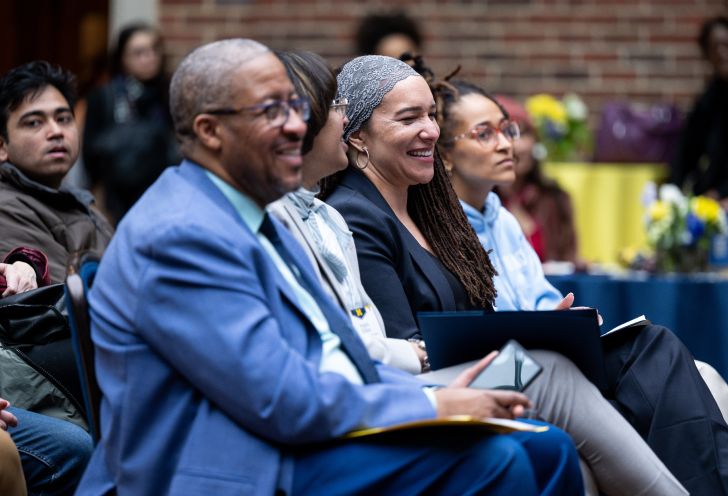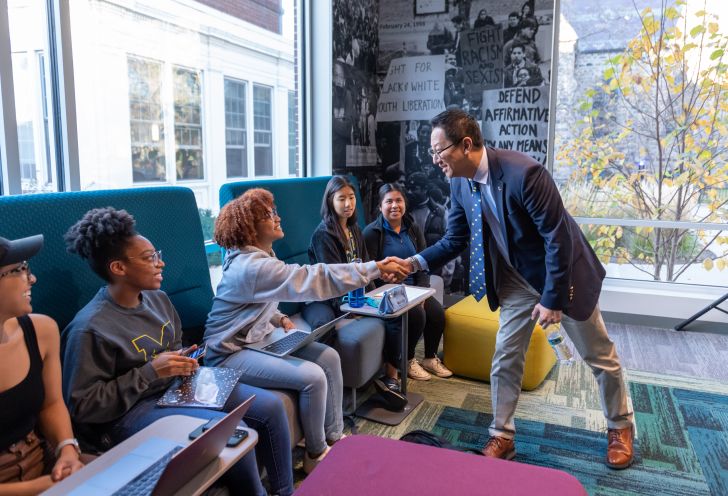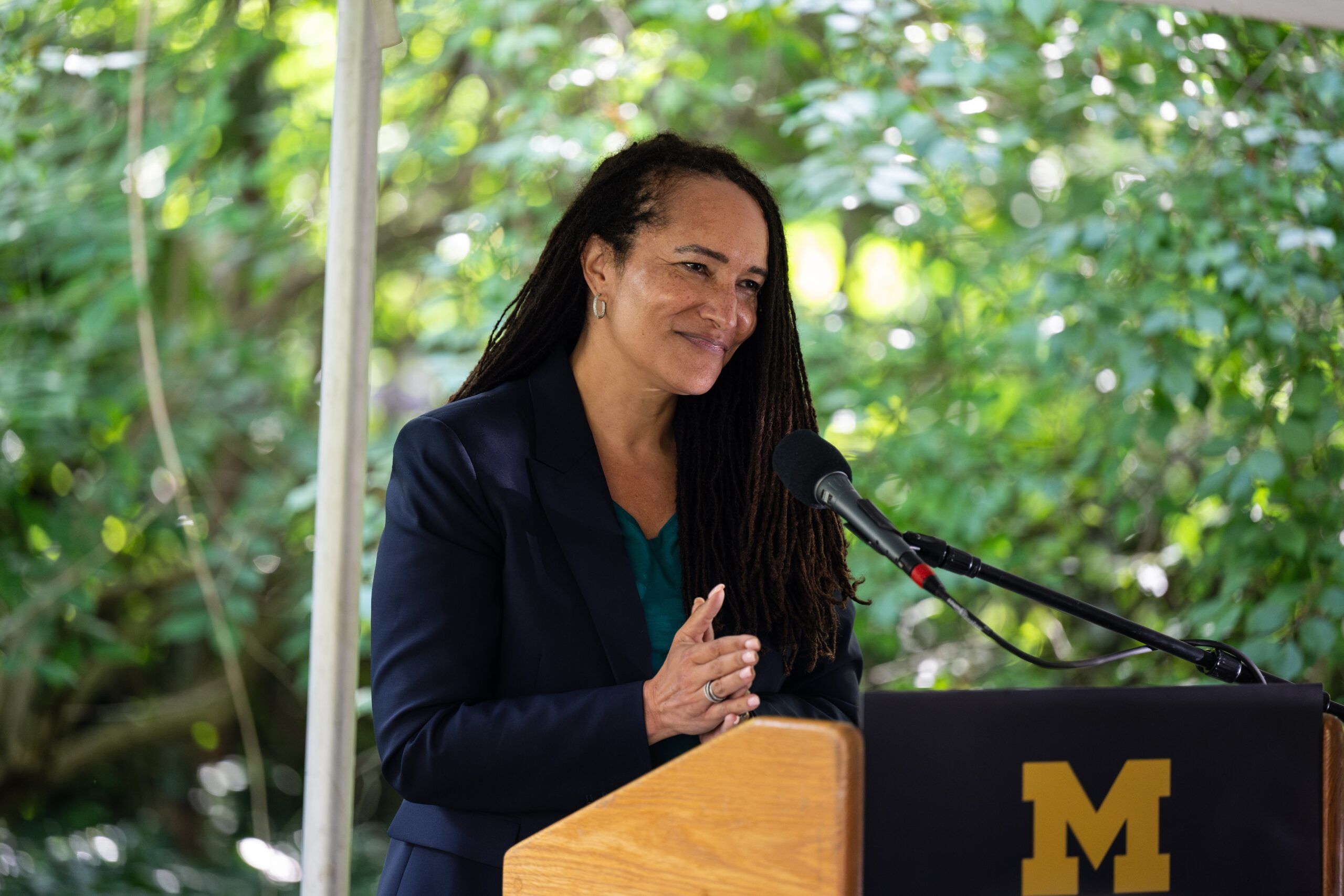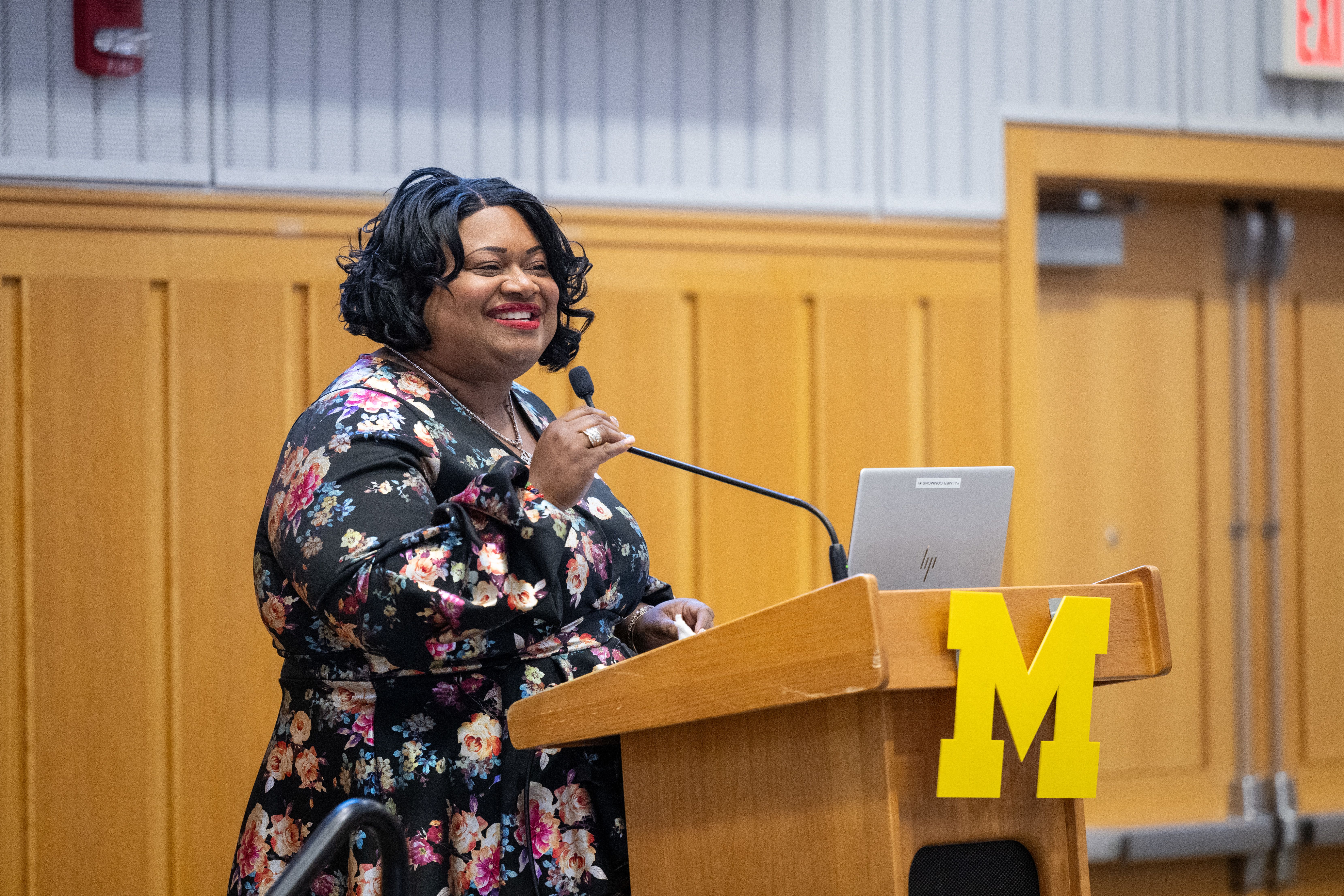
Santa J. Ono — President

Laurie McCauley — Provost and Executive Vice President for Academic Affairs
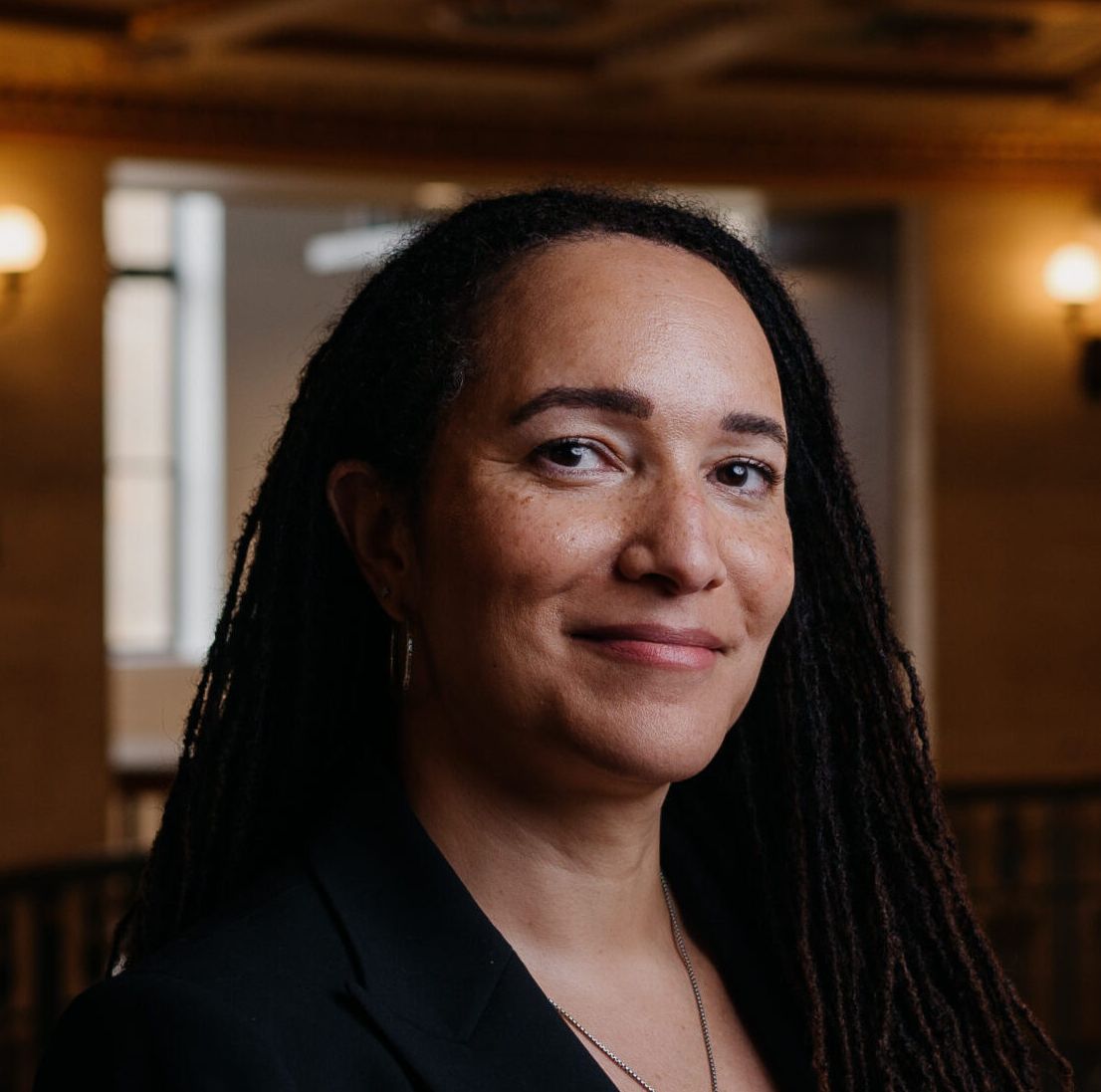
Tabbye Chavous — Vice Provost for Equity & Inclusion and Chief Diversity Officer
In this next phase of our DEI strategic plan, we are prepared to build on our institutional commitment to ensuring a diverse, equitable and inclusive community with even more sharply defined goals, new innovations and investments, and enhanced measures of accountability—shaped and informed by our own University community. We will continue to test new ideas, assess our progress, and have difficult conversations about tough issues. We will continue to listen, and we will learn as we move forward—together.
A Plan and Pledge: Our Continuing Journey
To All Members of the University Community,
At the University of Michigan, our pursuit of academic excellence is inseparable from our commitment to diversity, equity, and inclusion (DEI). This foundational belief, supported by over three decades of research, has guided our efforts to positively change and sustain an institutional culture that supports our entire community. It also remains central to our mission as we reflect on the progress of Year 1 of our DEI 2.0 Strategic Plan, a new phase of our campus work, informed and guided by the insights and priorities of our diverse University community.
Building and Improving on Our Progress
Our DEI 2.0 efforts build on the strong foundation set by our inaugural DEI strategic plan, DEI 1.0, a presidential initiative resulting from years of campus community engagement and expert input. This initiative sparked transformation across our institution, including many successful programs and practices at the central level, and across our schools, colleges, and units that we have continued to build on, improve, and refine.
For example, as we transitioned to DEI 2.0, we increased financial support to our GoBlue Guarantee program to enhance affordability and access to more students from low-income and first generation backgrounds. This past year, academic outreach and pipeline programs like Wolverine Pathways increased four-year college admission for Michigan high school students from underserved, under-resourced communities. Our various strategies for improving racial/ethnic diversity in student enrollment are coming to fruition, increasing representation of students of color at U-M across all groups, with marked improvements for our most underrepresented groups. At the same time, we are supporting retention and success - improving graduation rates for all groups and reducing group disparities in graduation.
New Initiatives and Programs
In addition, we have implemented new initiatives that are responsive to community feedback and needs for our current context. One example of these efforts is the Secular, Spiritual, Religious and Interfaith (SSR&I) initiative, designed to foster religious and cultural inclusion across campus. We’ve made progress in building partnerships, conducting outreach activities, and developing educational programs that promote an inclusive environment, where diverse faith-based, cultural, and secular viewpoints are respected. We have engaged in collaborative efforts across campus units to develop concrete goals and actions for addressing all forms of religious and cultural bias, including anti-Arab bigotry, antisemitism, and Islamophobia. Additionally, the recently established Raoul Wallenberg Institute will develop strategies to combat antisemitism, divisiveness and discrimination through teaching, research and public engagement.
We started new campus-wide efforts focused on disability and physical and digital accessibility. Actions include improved signage and mapping of accessible entrances across campus, the launch of a new Disability Equity Office and Digital Accessibility Liaison Network, and an annual conference focused on dismantling ableism in higher education, among many efforts. Furthermore, we have prioritized disability and accessibility in our long-term Vision 2034 and Campus 2050 planning to ensure these values are integral to the university's future.
Our dedication to helping students succeed academically is closely linked to our goal of making education more equitable. The Early Momentum program helps first-year students design effective course schedules to stay on track and graduate on time. Studies show that building early momentum through thoughtful planning helps close achievement gaps and improve student outcomes. By addressing disparities early on, the Early Momentum program ensures that all students, regardless of background, have an equitable chance to thrive and earn their degree.
Our focus on diversity, equity, and inclusion as interconnected with academic excellence extends to the Michigan Program for Advancing Cultural Transformation (M-PACT) in the Biomedical and Health Sciences, a new partnership between U-M and the National Institutes of Health. M-PACT is designed to recruit outstanding early career faculty in health sciences fields and to support their success through high quality mentoring and career development supports and through working with schools, departments, and programs to improve climate and eliminate any cultural and structural barriers to faculty success. In its inaugural year, M-PACT has partnered with schools and colleges to recruit and welcome its first cohort of new faculty.
Together, these initiatives highlight our strong dedication to diversity, equity, inclusion, and cultural transformation across the University.
Looking Ahead
As we move into Year 2 of the DEI 2.0 Strategic Plan, we remain steady in our vision to build on the momentum established during this first year. The work of creating a truly diverse, equitable, and inclusive University is ongoing, and we are prepared to continue learning, evolving, and striving toward our shared goals in ways that serve and support our entire diverse community.
Our progress is a testament to the collective efforts of our entire community—students, faculty, and staff—who have brought passion, dedication, and insight to this crucial work. Your contributions are vital to our success, and your continued engagement will be essential as we navigate the challenges and opportunities that lie ahead.
Our Collective Commitment
While the DEI 2.0 plan builds on a foundation that has been part of our University's fabric for years, its initiatives continue to reflect deeply held values that have guided us throughout our history. This past year's achievements reaffirm our commitment to the strength of collaboration, innovation and accountability. Together, we are advancing toward a University of Michigan where every member of our community can thrive and contribute meaningfully to the public good.
We thank the U-M community for their unwavering commitment to this work. The progress we have made together in Year 1 is just the beginning, and we look forward to what we will achieve in the years to come.
Sincerely,
Santa J. Ono
President
Laurie McCauley,
Provost Provost and Executive Vice President for Academic Affairs
Tabbye Chavous
Vice Provost for Equity & Inclusion and Chief Diversity Officer
Committed Leaders
Learn more about our leadership, staff, and the ongoing dedication to our mission.
